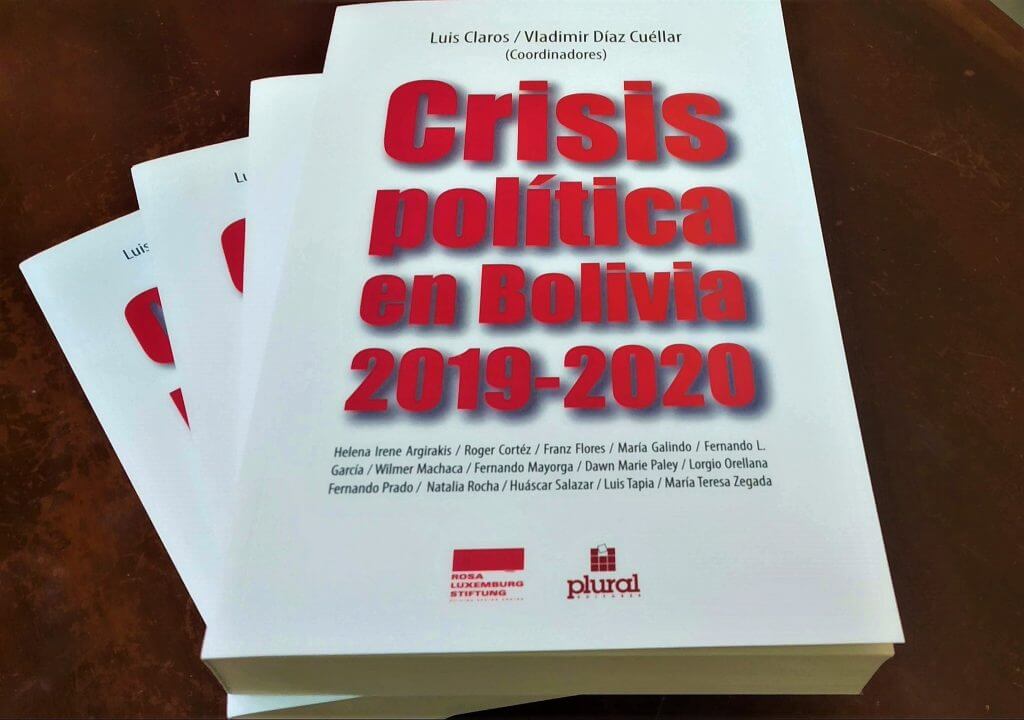Índice
Last Sunday, Santiago de Chile was the scene of one of the most important acts of democracy that has occurred in the two centuries of the country’s republican history: the first assembly of representatives elected by popular vote with the mandate to draft a new Constitution. This historical event is the outcome of the October 2019 social uprising, whose unprecedented scale managed to break the solid anti-democratic barriers that for decades prevented the people’s interests from being represented in politics. In homage to its history, the first day of the Constitutional Convention began in the streets, with a wide range of demonstrations marching to the site where the meeting was to be held. Images from the day were reflective of a full circle: the streets where the popular uprising took place in recent past were again filled with thousands of people and representatives of social movements, feminists, environmentalists, and indigenous groups that were awaiting the inauguration of a new opportunity, one that had been achieved by the people themselves to put an end to the Pinochet constitution and create a new legal framework and relationship between social and class forces.
The historical significance of the day, in addition to its unprecedented nature and its latent connection to the uprising, was lived through series of moments in which the popular and democratic character of the ongoing process eloquently emerged, announcing new ways of understanding politics, democracy, and the sovereignty of the people.
“Mari mari pu lamgen. Mari mari kom pu che. Mari mari Chile Mapu”
An image that made its way around the world: Elisa Loncón, a Mapuche woman, taking over as president of the Constitutional Convention and by her side, accompanying her, the Machi woman Francisca Linconao, a former political prisoner and respected spiritual authority. Both women sat at the head of the assembly representing all the people of Chile, with the Mapuche flag raised. That image, like no other, fully reflects the depth of the process that is being lived. A few years ago, it was unthinkable that a Mapuche woman, a group of people persecuted by the Chilean State and despised by the ruling classes, would head up the nation’s most important representative body. Today, however, it is not only a reality but also a milestone that makes wide swaths of Chilean society both proud and happy, as they see in this achievement a sign that it is possible to write a new story, this time starring historically neglected sectors that are represented by the Mapuche people.
The election of Elisa Loncón is expressive of profound transformations in the sensitivity of Chilean society towards the Mapuche people that have become visible especially in recent years after the uncovering of operations and police operatives aimed at criminalizing their struggle and cases like the murder of the young community member Camilo Catrillanca, which shook the country and generated widespread repudiation and solidarity from a variety of sectors. Today, the Mapuche people are recognized throughout the country as an icon of resistance and dignity and have become a point of reference of struggle for the other peoples of Chile, especially for the grassroots youth that were active in the October 2019 uprising. The Mapuche flag that was raised represented all corners of the territory. This was reflected in the broad support that Elisa Loncón’s candidacy garnered, which was announced on June 21 of this year at the Wüñoy Tripantu festivities as a political gesture. Favorable reception of the proposal was immediate among the representatives of social movements and the Frente Amplio (Broad Front), who openly expressed their support and voted in an orderly manner for the Mapuche candidate when the first Convention election was held. Later, in the second round, Loncón also received the conventional support of the “People’s List” from the Communist Party, the Socialist Party, and most of the independent representatives, giving her a resounding victory.
The election of this 58-year-old woman, indigenous peoples’ rights activist and an academic at the University of Santiago, was a good start for the First Nations, as it reflected support for her by the majority of the Convention, with Loncón being a representative who has been vocal about need to proclaim Chile as a Plurinational State, one of the main demands of native peoples and something that, in order to become a reality, needed the support of two thirds of the constitutional convention.
“No more repression!” The decline of politics with its back to the people
If the election of Elisa Loncón was an event that transcended borders, it is worth pointing out that the incident that at the beginning of the ceremony led to the first show of force by the grassroots sectors that went into the Convention and immediately announced a new way of exercising the role being taken on by representatives of the people in an institutional space. The tension began while the national anthem was being played, as it was repudiated by the indigenous constituents and other groups that refused to participate in singing it, since they found it to be an offensive act for the First Nations. Then, between blunders and slogans, the ceremony, which had begun at 10 in the morning, had to be suspended because a large group of convention attendees began to protest against the police repression unleashed outside the building where they were meeting. Conventional social movements, feminists, representatives from the People’s List, and first nations, joined by those from the Broad Front and the Communist Party, all began to shout out chants and keep the inauguration from continuing. “No more repression! No more repression!” they could be heard chanting, while the person in charge of the event received orders to put it on hold until the police repression was put to an end. In the blink of an eye, the meeting took on the form of a popular assembly, to the outrage of the right wing and the astonishment of progressive groups who were partial to good manners. Meanwhile, constituent groups left the event and returned to the streets to join the demonstrations and demand an end to the repression. After noon, once the government’s police forces had withdrawn, the ceremony was resumed.
This was the first show of force by a significant portion of the constitutional convention, arising from grassroots activists. With this, they showed a way of doing politics that does not follow the traditional rules of a good upbringing and complicity in the police repression ordered by the elites. The gesture made by the constitutional convention attendees and their ability to mobilize a majority of the assembly against police repression was a major and relevant political act that achieved its goal of expressing the disruptive force of a good part of the representatives of the grassroots groups that make up part of the assembly.
Memory, justice and feminism
The day, which had already been long and intense, ended with three key gestures. Elisa Loncón, president of the Convention, in her address to the full assembly, invited everyone to share minute of silence for those killed in the struggles for justice. In her address, she invokes those who died in the genocide perpetrated against indigenous peoples in the imposition of a national State, as well as those killed and disappeared by the military dictatorship, the people who died in the 2019 uprising. Loncón’s invitation was a political gesture that has a significance that is difficult to measure. If the founding of the Chilean State at the end of the 19th century was based on the oppression of the Mapuche people and if neoliberal Chile was built on the defeat of the popular movement, the new Chile, which paved the way for social uprisings and whose cost in lives, wounded persons and prisoners was enormous, will be built on the memory of those struggles, justice and reparations. After the solemn minute of silence, Elisa Loncón and Jaime Bassa announced as a first point that they would be drafting a declaration to order liberation of political prisoners that are still in custody from the 2019 uprisings. This is another clear signal of the desire to not repeat the impunity that has been the order of the day from previous eras, under the command of the elites. The day ended with the Convention’s president receiving a proposal for a feminist regulation, one that had been drafted by political and social activists from a variety of groups and sectors. A choir of female constituent attendees closed out the day with dances and festive applause, singing “Down with the patriarchy that is going to fall. Up with feminism that is going to win!”
We are well aware that this is just beginning and that there is still a long way to go, but the images left by the first day of the Constitutional Convention feed confidence that, as Elisa Loncon said in her speech, it is possible to change Chile. “This dream – taking her words – is a dream of our ancestors. This dream is coming true. It is possible, sisters and brothers, comrades, to refound Chile.”
Text originally published in the Chilenisches Tagebuch series by Medico International https://www.medico.de/chile-kann-sich-aendern-18285





